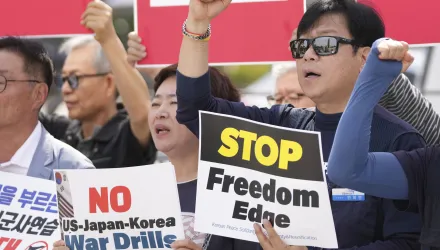International Security is America's leading peer-reviewed journal of security affairs.
Overview
Randall Schweller of Ohio State University reviews After Victory: Institutions, Strategic Restraint, and the Rebuilding of Order after Major Wars by G. John Ikenberry. Schweller praises Ikenberry for his “hugely successful first step” in explaining how victorious great powers have relied on strategic restraint and commitments by using multilateral institutions to deal with vanquished great powers. He is skeptical, however, of Ikenberry’s key theoretical innovation of “binding institutions” (e.g., NATO and the WTO) to explain how interlocking institutional constraints effectively limit a hegemon’s power.
Schweller, Randall. “The Problem of International Order Revisited: A Review Essay.” Summer 2001
The full text of this publication is available in the link below.





